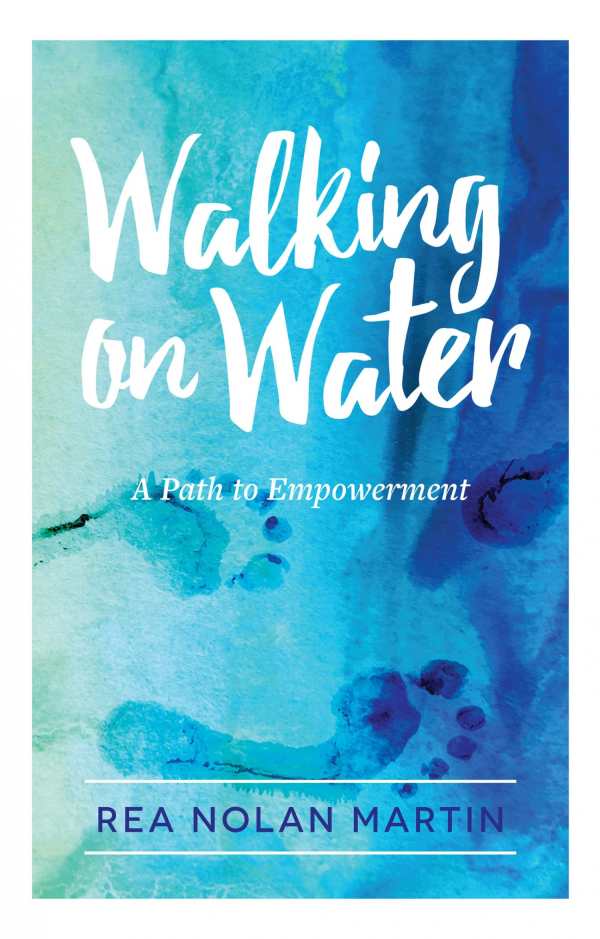Walking on Water
A Path to Empowerment
Short chapters make this Christian meditation on life challenges an ideal bedside devotional.
Rea Nolan Martin, the author of three works of visionary fiction, turns to nonfiction with Walking on Water: A Path to Empowerment. This collection of short, lively essays about spirituality urges love and compassion and points to the differences that faith can make, even—or especially—in times of suffering.
“The choice is always ours to awaken to higher truths here and now,” Martin writes. For her, as for many, 9/11 served as a wake-up call, reminding her that those who seem like the enemy can often turn out to be “our best teacher.” At times of stress and fear, the book argues, if we step back to get a new perspective, we will see that suffering changes us for the better. Drawing on personal experiences as well as upon Christian allegories, the author illuminates the challenges and everyday miracles of any spiritual life.
Martin acknowledges that, in the day-to-day, it can be difficult to see the supernatural at work. To that end, she challenges some ideas and gives down-to-earth advice for integrating spirituality into daily life. Sayings such as “love your neighbor as yourself” are all well and good, she remarks, but what if we don’t actually know how to love ourselves? Her advice for developing the proper self-love is to spend five minutes or more a day in meditation. A list of ten steps to quiet communion with “the Divine Presence,” and another of ten steps to living in the moment, will help put the book’s wisdom into practice.
Personal anecdotes about hard times in the author’s life—a brother’s death, financial trouble, an unexpected surgery, and her son’s cancer—also help to make the content relatable. The book’s design is excellent, especially the recurring watercolor brushstroke motif and the full-page pull quotes in the same signature typeface as on the cover.
Although the author approaches the world from a Christian perspective, the spirituality discussed here is broader than any particular faith. Rather than giving dogmatic lessons, the book makes Christianity’s key events a metaphorical basis for discussing how miracles break into earthly existence. For instance, Martin uses the Christmas story to question whether we are really “only human”; instead, she proposes, incarnation suggests “divinity awakened in the sleeping giant of humanity.” Likewise, a chapter centered on Easter proposes the resurrection story as the “perfect prototype of triumph” over evil and death. References to other belief systems, from Buddhism to traditional Chinese practice, ensure that the book will have wide applicability, suited to those of any, or no, religious background.
Composed of thirty-two short chapters, Walking on Water would make an ideal bedside devotional, particularly for those who appreciate writers like Anne Lamott.
Reviewed by
Rebecca Foster
Disclosure: This article is not an endorsement, but a review. The publisher of this book provided free copies of the book and paid a small fee to have their book reviewed by a professional reviewer. Foreword Reviews and Clarion Reviews make no guarantee that the publisher will receive a positive review. Foreword Magazine, Inc. is disclosing this in accordance with the Federal Trade Commission’s 16 CFR, Part 255.

